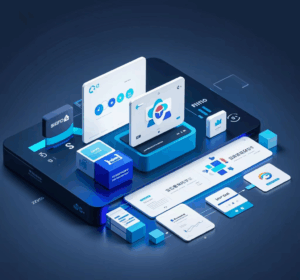Will Programmers Be Replaced by Artificial Intelligence?
In the past few years, AI has set off a revolutionary wave in various industries, and the field of programming is no exception. Since the advent of AI assistants such as GitHub Copilot, ChatGPT, and DeepSeek-Coder, more and more programmers have started to use AI to generate code, optimize logic, and troubleshoot bugs. For a while, the discussion about “whether programmers will be replaced by AI” has become more and more intense, and it has even become the biggest anxiety for some freshmen in colleges and those who are changing careers in the workplace.
So, will AI really make programmers unemployed? Or will it actually bring new possibilities for programmers?
The Rise of AI Programming: From an Auxiliary Tool to a Code Collaborator
The application of AI in the field of programming did not come out of the blue. Its development has experienced a huge leap from automatic code completion to intelligent code generation.
In the early days, programmers used tools like IntelliSense, which could only achieve basic syntax prompts. Now, with the help of large language models (LLMs), AI can generate entire segments of code with clear logic and standardized structure based on natural language descriptions. GitHub Copilot can automatically generate function bodies when you write function names, ChatGPT can quickly write Python scripts to process data, and even DeepSeek-Coder can help you build a complete application interface with Chinese prompts.
These tools have greatly improved development efficiency, especially in scenarios such as initial project setup, repetitive task processing, learning new languages or frameworks. It can be said that AI is gradually evolving from an “assistant” to a “collaborator”.
The Limitations of AI: Why Programmers Are Still Irreplaceable
Although AI performs well in programming, it still has several key flaws:
(1) Lack of true “understanding” ability
AI can imitate code patterns, but it doesn’t truly understand business logic. For example:
- It may generate code that seems reasonable but is actually wrong, especially in complex business scenarios.
- It can’t weigh architectural designs like humans do, such as whether the microservice splitting is reasonable.
(2) Limited creativity
AI is good at repetitive tasks, but it’s difficult for it to perform innovative programming. For example:
- Designing completely new algorithms (such as Google’s PageRank).
- Optimizing the underlying architecture of high-concurrency systems (such as Redis’ thread model).
(3) Debugging and maintenance still require human intervention
The code generated by AI may hide potential bugs, and debugging complex systems still relies on human experience. For example:
- Problems like memory leaks and race conditions are difficult for AI to identify 100% accurately.
- Business logic errors (such as the calculation rules in a financial system) require manual verification.
Conclusion: AI won’t replace programmers, but programmers who can’t use AI may be phased out.
The Future of Programmers: Not Replacement, but Amplification
Truly excellent programmers won’t be eliminated by AI. Instead, they will master the skills of using AI and treat it as a powerful tool in their toolbox.
Future developers will be more like “architects + planners”: controlling the overall direction, writing clear requirement prompts (prompts), judging the correctness of AI outputs, and optimizing the results efficiently.
You don’t need to remember all the APIs, nor do you have to reinvent the wheel from scratch. All you need to do is understand the problem, design a solution, and know how to use AI as an executor.
Just as Excel didn’t replace accountants back then but made financial work more efficient, AI will also become an “accelerator” rather than a “replacement” in a programmer’s workflow.
Come to NexusAI and experience a variety of development artifacts at once.
If you still don’t know where to start with AI programming, then NexusAI is an excellent starting point.
Nexus integrates multiple top code-related AI tools, and you can use the following on one platform:
- Code generator: Enter a description and automatically generate code in multiple languages such as Python, JavaScript, and SQL.
- Code interpreter: Helps you understand unfamiliar code and quickly grasp its meaning and logic.
- Code optimizer: Intelligently refactors long or inefficient code to improve its running performance.
- Bug analyzer / code checker: Automatically detects potential errors and gives repair suggestions.
Not only that, but Nexus also supports calling multiple large models simultaneously (such as ChatGPT, Claude, DeepSeek, etc.) to compare the output effects, allowing you to make the most suitable choice with the least amount of effort.
Epilogue: The Value of Human Programmers Has Never Been Underestimated
AI won’t replace those who know how to use it. The real threat is not AI itself, but that you’re still using old methods to solve new problems.
The value of programmers has never been just about “writing code” itself, but about “solving problems with code”. And AI is exactly the brand-new tool in our hands.
Try NexusAI now and let AI become your most powerful development partner!




